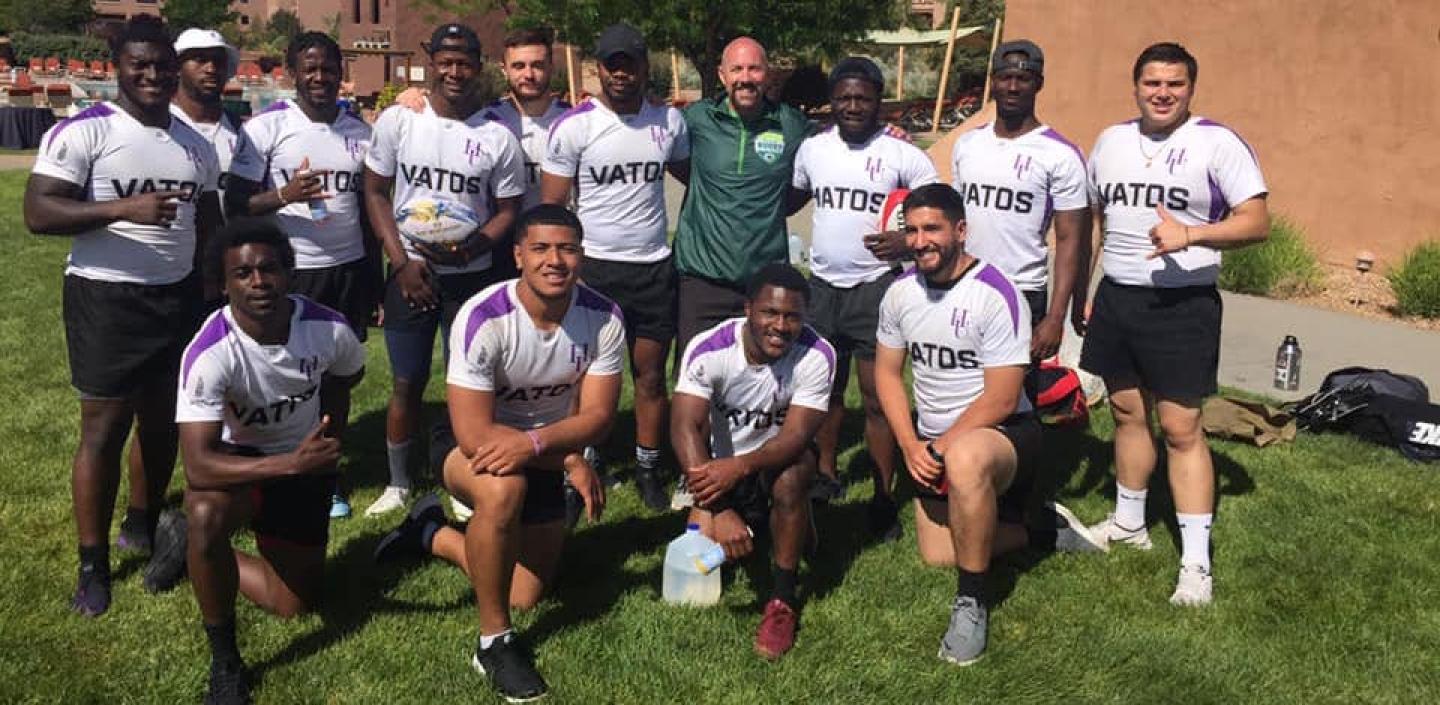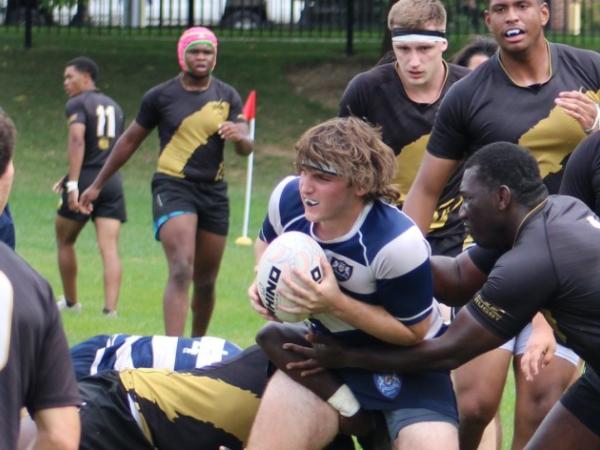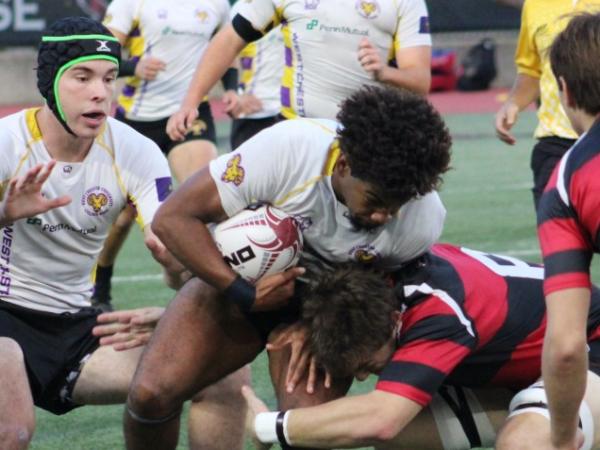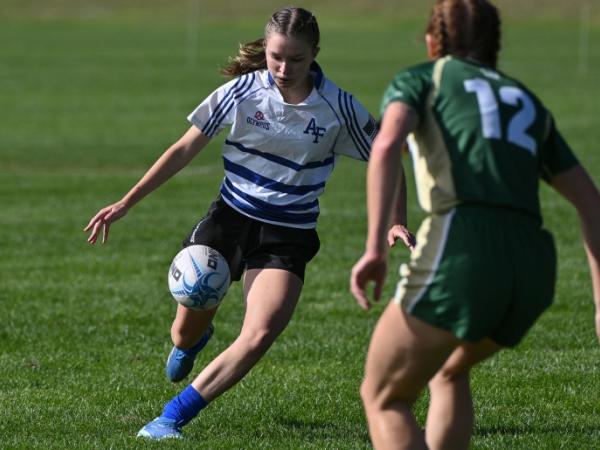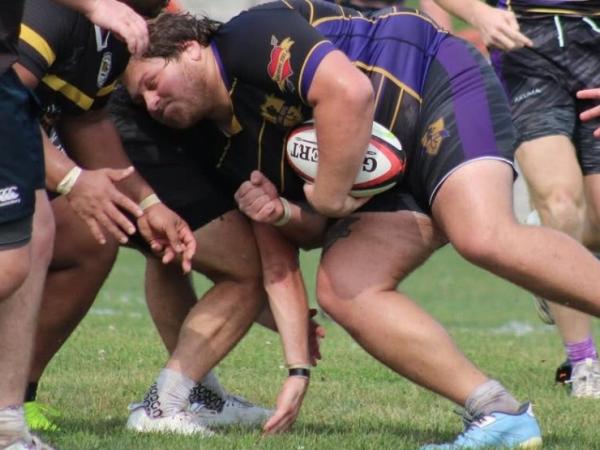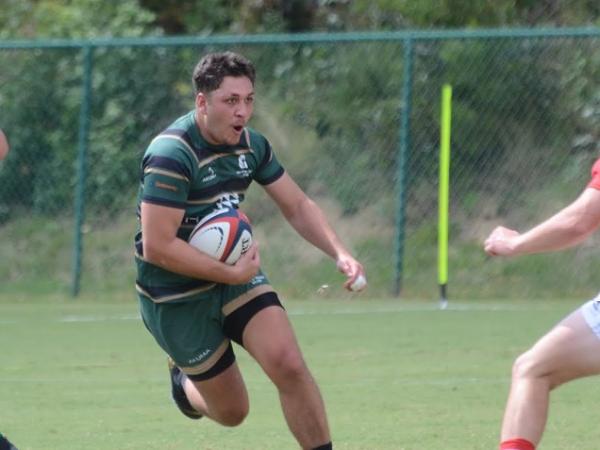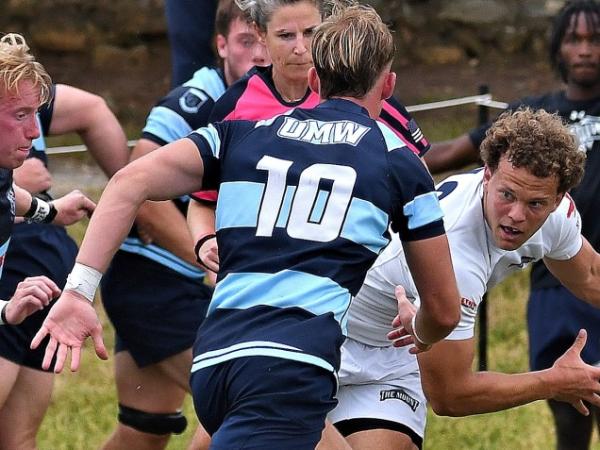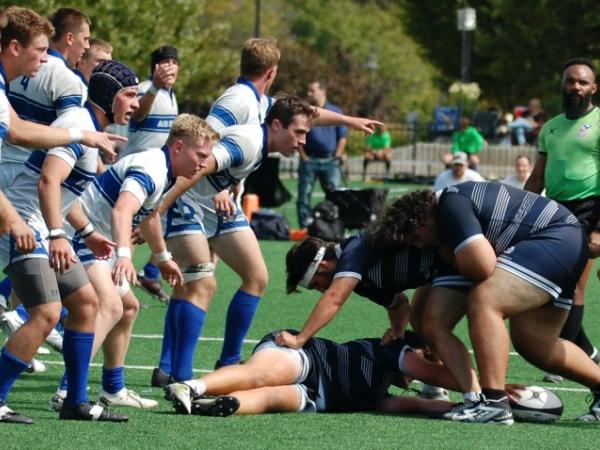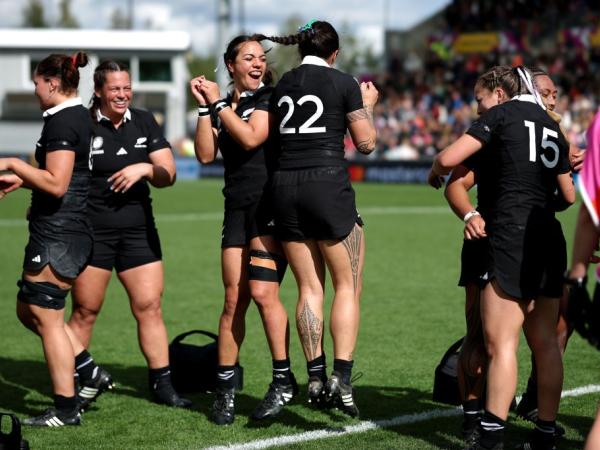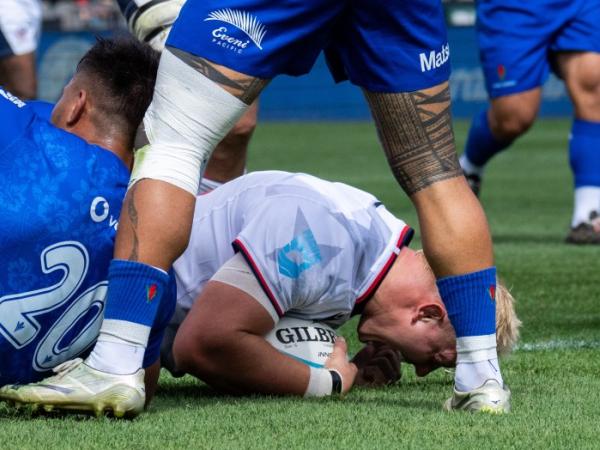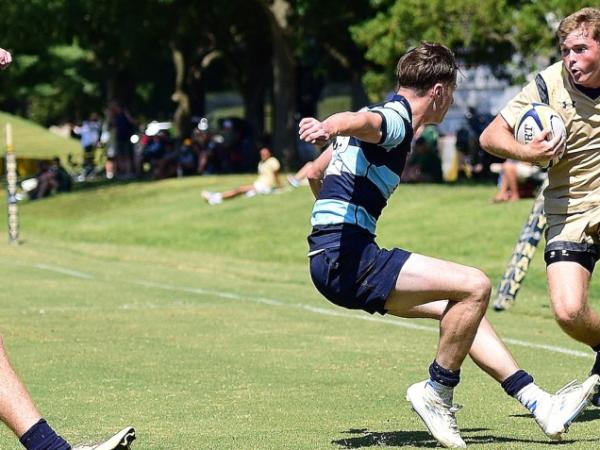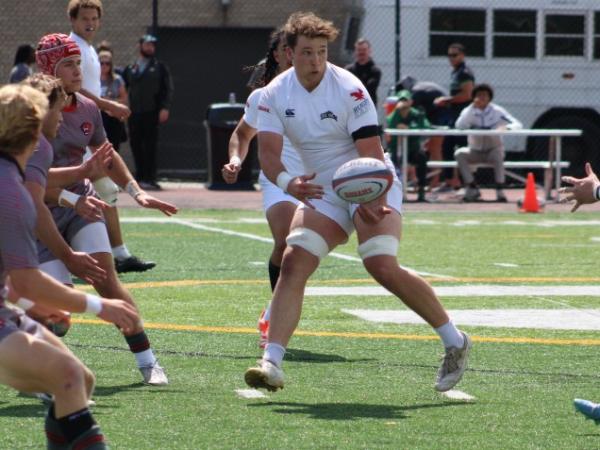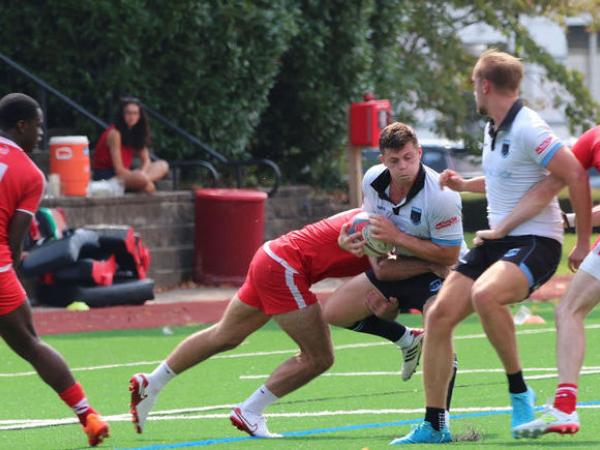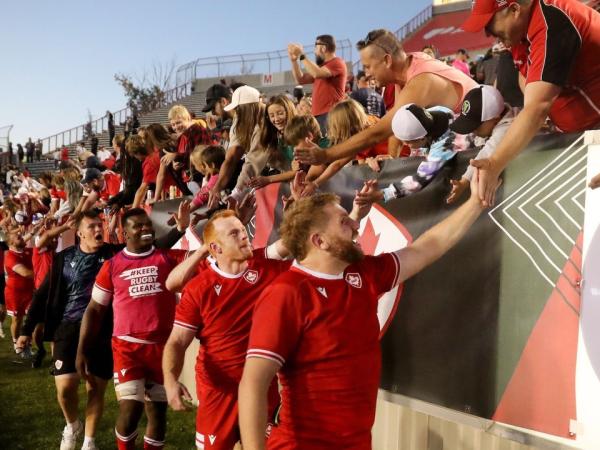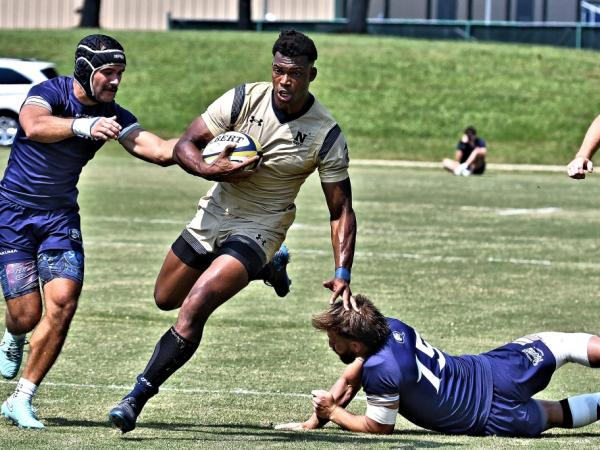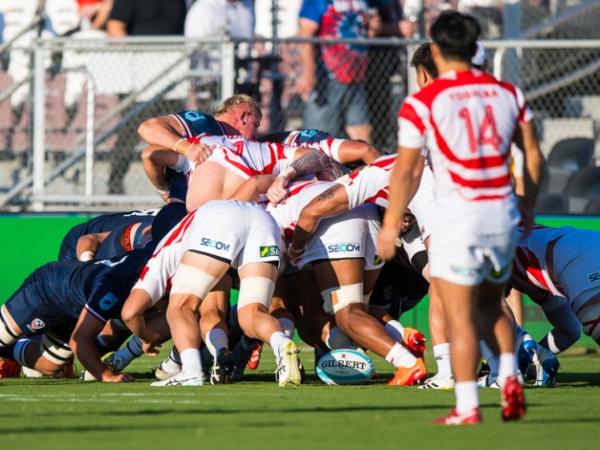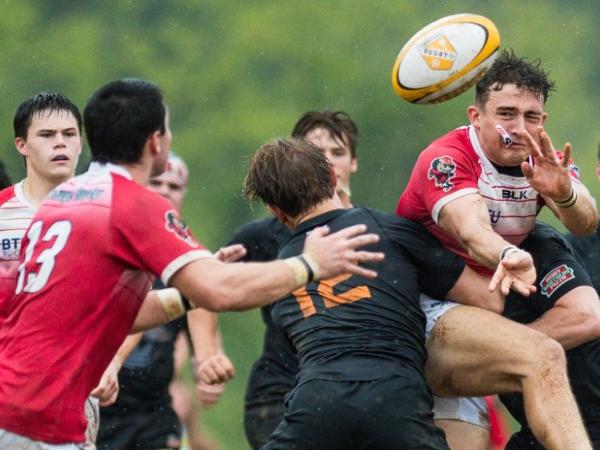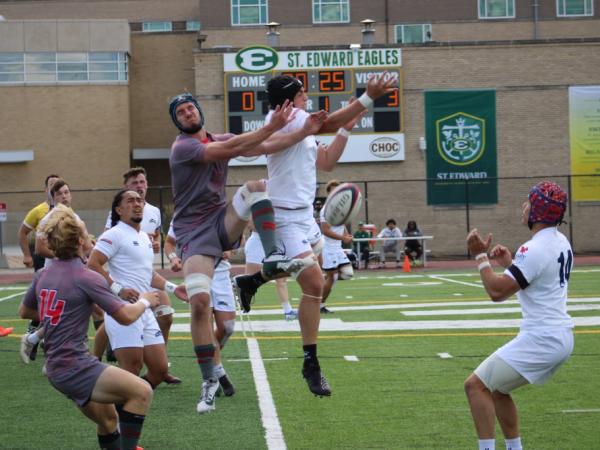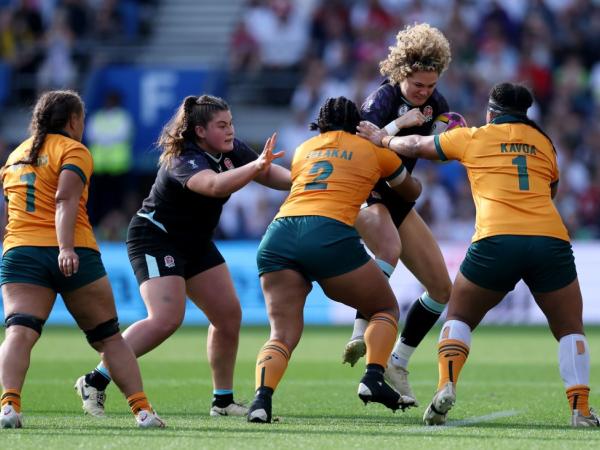The story of the New Mexico Highlands punishment is a cautionary tale for many in college rugby, a tale whose moral is: we’re not there yet.
Eligibility shenanigans, confusions, and variations have been a problem in college rugby periodically through the years. Overseas players who are 23 who claim to be freshmen, players not in good standing with their school still playing, and rules (and punishments) that differ based on the competition all are a factor.
To defeat these demons, USA Rugby, and various college organizations, including what used to be NSCRO and is now NCR, have tried to be more clear about their rules. But the very nature of the sport, which remains a club sport on most campuses, means that enforcement often comes at critical times.
When you don’t find out about a problem until there’s a championship match to be played, is it too late?
NCR’s official press release on NMHU being stripped of its 2019 NSCRO 7s championship was light on specifics. The school used ineligible players, said the release. After follow-up questions to NCR CEO Steve Cohen, he told us that “countless hours were spent” confirming the issue and that it all came to light due to an investigation from the Rocky Mountain Conference.
The Story
New Mexico Highlands beat Claremont Colleges 17-12 in the 2019 NSCRO 7s final, scoring a try on the final play of the game to break a 12-12 tie and win 17-12. The try-scorer, Donavan Kandjii, is a very talented player who represented Namibia’s U20s in 2013 and was 25 years old when he scored that try. According to his bio on the NMHU website, he played semi-professional rugby in Namibia before joining the Vatos, althought the term semi-professional is a loaded term that doesn’t mean anything specific in and of itself.
Justin Stallworth was NMHU’s “Life of Significance” award nominee last year. He is now 29 years old. One of the players now deemed ineligible, and the only player NMHU coaches acknowledge was ineligible, was still playing for NMHU this past fall. He is not the only player who played in NSCRO who is that old. He was listed on NMHU’s football roster in 2014, where he was listed as a junior, and the article in the Las Vegas (NM) Optic talking about his award nomination called him a graduate of the school — that was in May of 2019, but Stallworth, who seems like a fine person with some impressive professional goals, was still playing college rugby in the fall.
Lawrence Garciam aka Lawrence Boog, was named the MVP of the PacWest NSCRO playoffs last spring. He is 28 and lists on social media as having graduated from high school in 2010.
Age Isn't The Only Number
Being older doesn’t necessarily make you ineligible. NSCRO’s eligibility regulations, now NCR’s, say a player’s eligibility clock starts when he or she enrolls in college. USA Rugby’s rules state that a player’s clock starts when he or she graduates from high school. This is a hugely important distinction.
If you played in NSCRO, you could take a couple of gap years and still start as a freshman with seven years available to play five. Under USA Rugby’s rules, you’d only have three years left before you had to apply for a waiver to get more time. NSCRO (now NCR) has not limited the age of players, either, but has put in a limit of the number of players over 25 that you can field in any one game (five).
Now there’s a further complication in that college rugby teams overseas don’t treat college sports the way its treated in the USA. College students are allowed to “play out,” which means they could play for a professional team on occasion and still be OK to play on their college team. University teams in the UK, for example, routinely field graduate students, some of them former pros.
University teams play in senior club leagues, and they often field players who are not actually students at the university. This is anathema to how it’s all done in the USA, but has to be understood. Three players at NMHU played for the University of Namibia, but according to NMHU coaches, they weren’t students there. The university ended up having to write a letter confirming this. And even that is complicated, because players were playing for the University of Namibia when they were not students, and then enrolled later and kept playing.
Roster Raises Concerns
Despite losing the 2019 7s final, Claremont Colleges did not alert NCR to any problems with New Mexico Highlands. It was the Rocky Mountain Conference this past fall that raised concerned. Questions were raised after NMHU took a tour to Arizona and were asked about whether all of their players were full-time students. Rocky Mountain Commissioner Ken Stone learned of this and started to look into it. He found some players he had questions about, including some older players who one would naturally want to check out. In further investigation into NMHU's Player Eligibilty Verification (PEV), which is signed off by the registrar of the school, several NMHU players were shown go have transferred to nearby Luna Community College and kept playing for the Vatos. Now, community college students can play for a university team if there’s a standard agreement between those two schools. According to our sources, there is no such agreement between Luna CC and NMHU.
That could have been where NMHU coaches just assumed it was OK and then realized it wasn't. Whatever the reason, the spring, 2019 PEV left off all of those Luna CC players. Stone was surprised to see some top players removed from the roster, went into it a little deeper, and established that at least some of the players were not eligible to play in the 2019-2020 season.
NMHU ended up forfeiting two matches because of this, were cut out of the conference playoffs, and the information was kicked upstairs to NCR leadership.
The Labrynth of Paperwork
At New Mexico Highlands, this was all the result of a couple of bad mistakes. Coach Keith Maes was in charge of the team’s paperwork and he says he screwed up.
“I tried my hardest to ensure that I was following proper protocol,” Maes told Goff Rugby Report. “Nothing was done intentionally. I can’t forgive myself for not following up on the some of the things I needed to follow up on.”
But he also said, things have to be verified before a championship, not after.
“What upsets me a little bit is that we submitted documentation before for the tournament; they have officials that review that paperwork,” said Maes. “If they had reviewed it the way they say they do as part of their compliance then they would have nipped it all in the bud. I am not saying it’s not my fault, but they have a responsibility, too.
“Telling a person he can’t play is better than doing it a year later and disqualifying us from our championship.”
Maes said it can be difficult when you’re a volunteer or part-time coach and you have a day job to cover all the paperwork bases. And so you rely on your players to be accurate with their information, and sometimes they’re not.
“A lot of times within rugby it’s not a full time job for us and it can be challenging to manage the entirety of all that paperwork,” said Maes. “I took the word from our student athletes from what they told us when they started college. I learned a lot about the process and about paying close attention to detail.”
This explanation can be dismissed as a common excuse, but it has a sharp ring of truth about it. Coaches who don’t get in trouble with the rules complain about it too. Compliance officers who help get teams compliant rather than wait for them to trip up could, in the long run, help more.
Epilogue
Claremont Colleges will not receive the 2019 7s Championship after NMHU was disqualified. The championship will stay vacant. Claremont was seeking to become the first NSCRO team to hold win the 15s and 7s titles in the same year.
NMHU is banned from the playoffs for this season.
Social media is a big part of these investigations, and social media details about players are sometimes how they are found out to be in violation.
What's really odd about NCR's punishment is that it's for actions in the 2018-2019 season, and yet the instigation was for violations in this season.
The assertion by Maes that it would have been better to actually check the paperwork before the 7s championships has some merit.
What was NSCRO had a set of rules that were more liberal than many conferences want. Now the organization is NCR with new members from a variety of divisions, there will be an expanded Eligibility Committee (expanded to include members of all the divisions) to examine policies. Those policies will likely be finalized in July and there’s a strong chance that sevens years to play five, with the clock starting when you enter college, will be opposed.
There probably needs to be some kind of overseas student-athlete onboarding document that explains to these players the information they have to provide. Many eligibility questions in American college rugby center around players who attended school (or didn't attend school) overseas.
Players who are less than forthcoming about their background usually end up penalizing their team and their coach more than they get penalized.
Coaches need to ask for help more, and need to have help available, to navigate some of the eligibility requirements.






